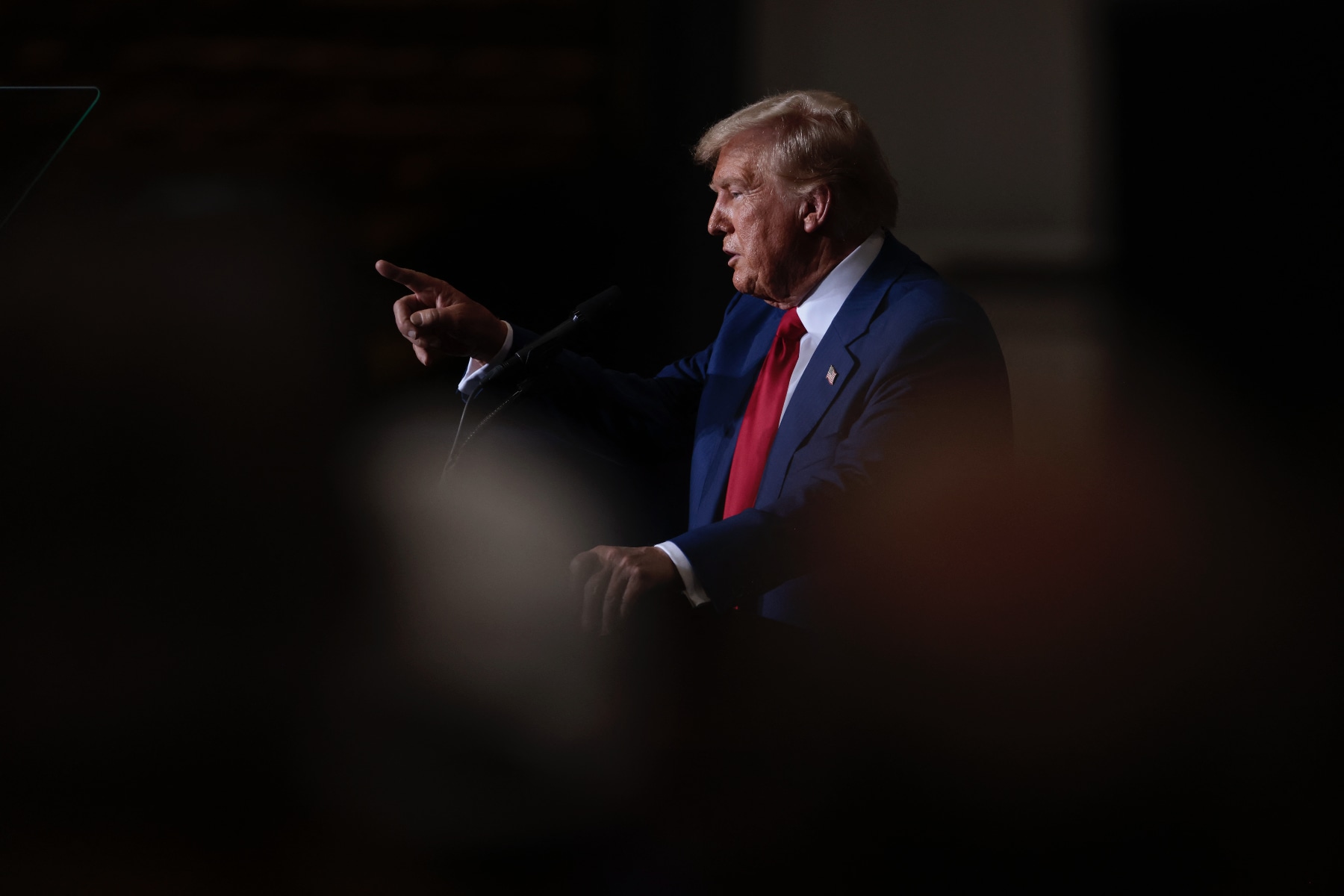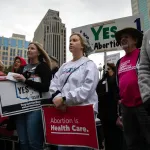Your trusted source for contextualizing Election 2024 news. Sign up for our daily newsletter.
Former President Donald Trump announced Thursday that he would ensure the government or insurance companies would fully pay for people’s IVF treatments, without providing details on how. He also indicated he would vote for a Florida ballot measure that would overturn a six-week abortion ban, though his campaign later said that he has not yet disclosed how he would vote on the measure.
“I think the six-week (ban) is too short, it has to be more time,” Trump told NBC’s Dasha Burns when asked how he’d vote on the ballot measure, which would establish a right to abortion until the point of fetal viability. “And I’ve told them that I want more weeks.”
The GOP presidential nominee’s statements came the same week that several leading voices in the anti-abortion movement publicly denounced his campaign and called for millions of anti-abortion voters to withdraw their support. The Florida ballot measure is opposed by anti-abortion activists, and some also oppose in vitro fertilization (IVF) as it is commonly practiced.
“Under the Trump administration, your government will pay for — or your insurance company will be mandated to pay for — all costs associated with IVF treatment,” Trump said at a campaign stop in Potterville, Michigan. “Because we want more babies to put it very nicely. And for the same reason, we will also allow new parents to deduct newborn expenses from their taxes.”
Trump did not provide further details on how his administration would ensure that IVF costs are covered, only that he has been in favor of IVF “from the beginning.” He has often made promises that something would happen without providing information about how he would do it or how it would be paid for. Currently, the cost per patient for one cycle of IVF is about $20,000, according to Department of Health and Human Services estimates.
For months, Trump, who is registered to vote in Florida, has declined to answer questions about how he’d vote on the Florida ballot measure. While he never directly said Thursday that he would vote for the amendment, after being asked twice by Burns, he said, “I am going to be voting that we need more than six weeks.” The ballot measure gives voters a chance to decide whether to expand access to abortion to the point of fetal viability, usually around 22 to 25 weeks, or leave it at six weeks.
Trump added that exceptions to abortion restrictions “are very important for me, for Ronald Reagan, for others that have navigated this very, very interesting and difficult path.”
The criticism of Trump by anti-abortion activists earlier in the week was largely sparked by an interview Sen. JD Vance, Trump’s running mate, gave Saturday on NBC’s “Meet the Press.” When asked if Trump would pursue a federal ban on abortion if he became president, Vance responded, “He would not support it — I mean, he said that explicitly.” The previous day, Trump posted on Truth Social that he would be “great for women and their reproductive rights.”
Lila Rose, president and founder of the anti-abortion group Live Action, on Monday posted on social media: “If you don’t stand for pro-life principles, you don’t get pro-life votes.”
It’s a dramatic turn for Rose, who once leveraged her sizable following to support the Trump administration. She was even invited to speak at the White House in 2019 as one of the key conservative media figures praised by then-President Trump for her work.
In response, some conservatives immediately called for anti-abortion voters to support Trump at all costs in the 2024 presidential election. However, a few prominent voices echoed Rose’s criticism of the GOP presidential ticket.
Mike Pence, Trump’s vice president in his first term and a religious conservative who is not endorsing Trump, applauded Rose on social media on Tuesday: “Proud of you @LilaGraceRose! Thank you for your Courageous stand for the Right to Life!”
Also on Tuesday, the National Review published an editorial calling for the Republican Party to “take a stand on abortion.”
“The palpable panic among Republicans has reached the point that pro-lifers have to wonder if there’s any difference left between the parties on abortion,” the National Review editors wrote. “Pro-life activists and voters, who have been far too indulgent of Trump, ought to ask him to give them reasons to vote for him.”
Jordan Cooper, a theology professor and prominent Lutheran pastor, voiced his disapproval of Trump on social media the same day.
“The ‘most pro life’ president removed all pro-life language from his platform other than opposition to late term abortions, which account for 1-4% of abortions every year,” Cooper posted.
The latest messaging from the Trump-Vance ticket reflects a clear party shift on the issue of abortion as the Republican Party navigates a political landscape that is largely in favor of abortion access, a stance that has only strengthened since the Supreme Court ended a federal right to abortion in 2022.
Trump has not been consistent in his stance over the years: In 2017, Trump applauded the House for voting for a national ban on abortion. In 2020, he became the first sitting president to speak at the March for Life, the nation’s largest annual anti-abortion rally. Trump has claimed credit for the overturning of Roe v. Wade and Vance once opposed any exceptions to abortion bans. However, both appear to be softening their stance, not mentioning abortion at all at the RNC, declining to support a nationwide ban, deferring authority to the states when it comes to accessing the abortion pill and supporting access to IVF.
For nearly 50 years, anti-abortion voters found a home in the Republican Party after the GOP adopted an anti-abortion stance in 1976, in large part to appeal to Catholic voters. It wasn’t until the 1980s that evangelical Christians joined the anti-abortion movement and the Republican Party really became a political vehicle for American Christians who opposed abortion. About two-thirds of the Americans identify as Christian, which includes roughly 57 million Catholics and 34 million White evangelicals, according to data out Thursday from PRRI. White evangelicals are the most anti-abortion religious group now; according to 2020 Pew data, 77 percent think abortion should be illegal in most cases. About 56 percent — the majority — of American Catholics, however, think abortion should be legal in almost all cases.
The Republican Party’s 2024 platform did not call for a total end to abortion. It did, however, support states’ rights to establish fetal personhood, which would in effect completely prohibit the procedure.
The vast majority of Republicans support Trump and do not back a federal ban. And several prominent anti-abortion groups are still backing Trump for now, arguing his second term would still be more sympathetic to the movement than a Kamala Harris presidency.
Kristan Hawkins, the president of Students for Life of America, said on Thursday that she would continue to support Trump.
“I’m voting for the person who will ensure our nation survives another four years, from threats internal & external, AND will ensure the least amount of innocent people will die,” Hawkins said in a social media post. “It’s that simple.”
To check your voter registration status or to get more information about registering to vote, text 19thnews to 26797.





